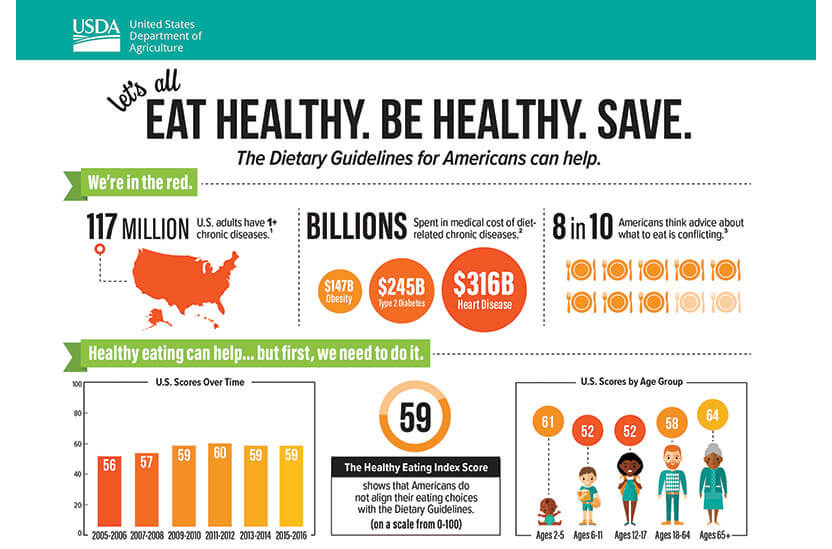Krystal Register, director of health and well-being for FMI- The Food Industry Association – offered the following comments on the United States Department of Agriculture’s 2020 Dietary Guidelines Advisory Committee’s final report, which was released recently.
“The key to effective and achievable recommendations is that they be both science-based and practical for consumers to apply to their lifestyles. Food retailers have created a marketplace for healthy, accessible, nourishing food choices, along with information about health and well-being.
“In fact, 85 percent of the supermarket industry now employs dietitians, who assist in identifying and creating healthful messaging and personalized choices for consumers via meal solutions, accurate labeling, tours and consultations with their health goals and special dietary needs in mind. All this positions food retailers in a unique situation to help customers with innovative practical ways to encourage healthy dietary patterns and eating behaviors.
“Our research, as well as other existing research, indicates that those who eat and cook at home include more fruits and vegetables and consume fewer calories, fat and sugar. Furthermore, current and emerging research indicates children and adolescents who share family meals at home are more likely to be in a normal weight range and have healthier dietary patterns and eating habits as well as emotional well-being benefits. FMI has created a movement around family meals designed to make eating and cooking at home easier, more fun and more economical. The COVID-19 pandemic has made this focus even more important.
“FMI appreciates the opportunity to review and provide comments on the 2020 Dietary Guidelines Advisory Committee’s final scientific report,” Register said.
As the food industry association, FMI works with and on behalf of the entire industry to advance a safer, healthier and more efficient consumer food supply chain. FMI brings together a wide range of members across the value chain — from retailers that sell to consumers, to producers that supply food and other products, as well as the wide variety of companies providing critical services — to amplify the collective work of the industry.

